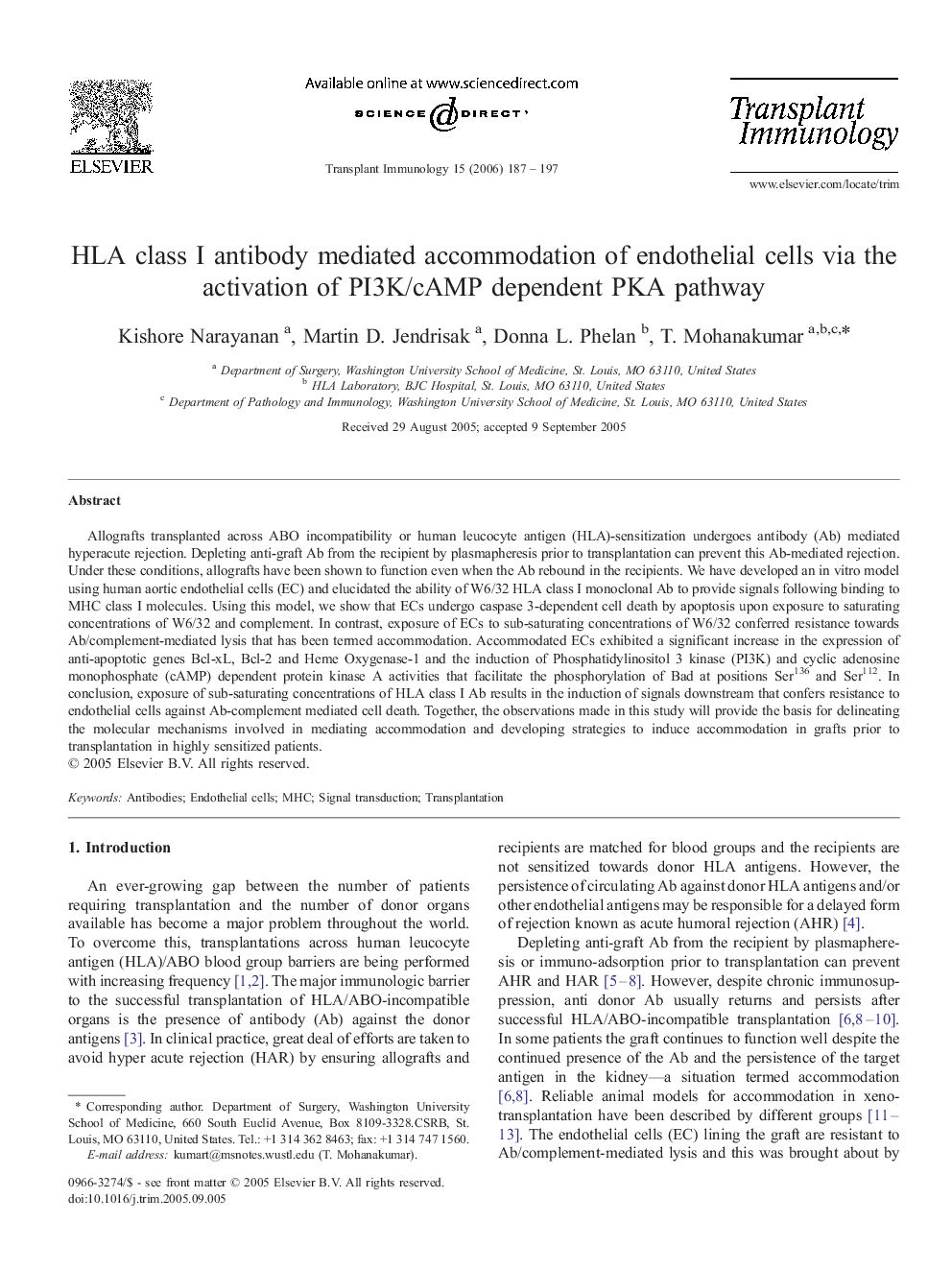| Article ID | Journal | Published Year | Pages | File Type |
|---|---|---|---|---|
| 3392631 | Transplant Immunology | 2006 | 11 Pages |
Allografts transplanted across ABO incompatibility or human leucocyte antigen (HLA)-sensitization undergoes antibody (Ab) mediated hyperacute rejection. Depleting anti-graft Ab from the recipient by plasmapheresis prior to transplantation can prevent this Ab-mediated rejection. Under these conditions, allografts have been shown to function even when the Ab rebound in the recipients. We have developed an in vitro model using human aortic endothelial cells (EC) and elucidated the ability of W6/32 HLA class I monoclonal Ab to provide signals following binding to MHC class I molecules. Using this model, we show that ECs undergo caspase 3-dependent cell death by apoptosis upon exposure to saturating concentrations of W6/32 and complement. In contrast, exposure of ECs to sub-saturating concentrations of W6/32 conferred resistance towards Ab/complement-mediated lysis that has been termed accommodation. Accommodated ECs exhibited a significant increase in the expression of anti-apoptotic genes Bcl-xL, Bcl-2 and Heme Oxygenase-1 and the induction of Phosphatidylinositol 3 kinase (PI3K) and cyclic adenosine monophosphate (cAMP) dependent protein kinase A activities that facilitate the phosphorylation of Bad at positions Ser136 and Ser112. In conclusion, exposure of sub-saturating concentrations of HLA class I Ab results in the induction of signals downstream that confers resistance to endothelial cells against Ab-complement mediated cell death. Together, the observations made in this study will provide the basis for delineating the molecular mechanisms involved in mediating accommodation and developing strategies to induce accommodation in grafts prior to transplantation in highly sensitized patients.
